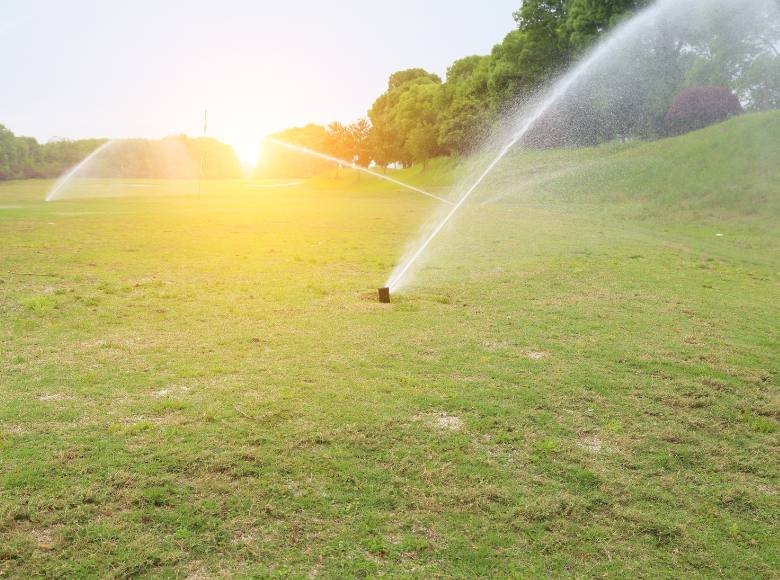Implementing efficient irrigation techniques for summer golf course maintenance starts with understanding the significance of efficient irrigation, evaluating watering requirements and course conditions, implementing intelligent irrigation technologies, following strategic irrigation practices, and turf management practices.
Summers in Florida bring sunny days and high temperatures, presenting unique challenges for the upkeep of golf courses. One crucial aspect of golf course maintenance during this season is efficient irrigation. Effective watering methods not only ensure the vitality and well-being of the turf but also contribute to water conservation efforts.
In this article, we will explore a variety of efficient irrigation techniques that golf course managers in Florida can implement to optimize their maintenance practices and keep their courses in excellent condition.
1. Understanding the Significance of Efficient Irrigation Techniques
Efficient irrigation serves as the foundation for sustainable golf course maintenance. By employing water-saving techniques, golf course managers can reduce water consumption, preserve resources, and minimize the environmental impact.
Moreover, efficient irrigation practices promote robust turf growth, enhance playability, and contribute to the aesthetic appeal of the course. Striking the right balance between providing sufficient moisture for plant health and avoiding excessive watering, which can result in wastage and potential turf issues, is of utmost importance.
2. Evaluating Watering Requirements and Course Conditions

Before delving into irrigation techniques, golf course managers must assess their specific course needs and the prevailing environmental conditions. Factors such as soil composition, grass species, topography, shade distribution, and local weather patterns play a significant role in determining watering requirements. A comprehensive evaluation allows managers to devise a tailored irrigation plan that caters to the unique characteristics of their course.
3. Implementing Intelligent Irrigation Technologies
Advancements in irrigation technologies have revolutionized golf course maintenance. Smart irrigation systems, equipped with weather sensors, soil moisture sensors, and computerized controllers, enable precise and targeted watering based on real-time data. These technologies automatically adjust watering schedules, ensuring that water is applied only when and where necessary, thereby optimizing water usage efficiency. By incorporating these systems, golf course managers can reduce water wastage, lower operational costs, and simplify maintenance tasks.
4. Strategic Irrigation Practices
In addition to advanced technologies, strategic irrigation practices are crucial for efficient golf course maintenance. These practices include:
a) Watering During Optimal Time Periods: Watering during the early morning or late afternoon helps minimize evaporation losses and allows the turf to effectively absorb moisture.
b) Appropriate Watering Frequency: Rather than following a fixed schedule, it is essential to water based on soil moisture levels and plant requirements. Regular soil moisture tests and adjusting watering schedules accordingly ensure efficient water usage.
c) Uniform Water Distribution: Ensuring even water distribution across the course prevents dry patches and excessive water accumulation. Regular inspection and maintenance of sprinklers and irrigation equipment are vital to achieve this objective.
d) Irrigation Audit and System Maintenance: Conducting periodic irrigation audits helps identify and resolve leaks, malfunctioning sprinklers, or other issues that may lead to water wastage. Routine system maintenance, including nozzle cleaning and pressure checks, guarantees optimal performance of the irrigation system.
5. Turf Management Practices
Efficient irrigation should be complemented by proper turf management practices. Aerating the turf, managing thatch, and mowing at suitable heights promote healthy root development, water absorption, and reduce water runoff. The combined impact of efficient irrigation and turf management practices ensures effective water utilization, thereby minimizing the overall water demand of the golf course.
Efficient irrigation techniques are of paramount importance for maintaining golf courses during the scorching Florida summers. By embracing smart irrigation technologies, implementing strategic watering practices, and prioritizing comprehensive turf management, golf course managers can strike a balance between water conservation and maintaining optimal course conditions.
Incorporating these practices not only benefits the environment but also contributes to sustainable and cost-effective golf course maintenance. Placing a strong emphasis on efficient irrigation allows golf courses to flourish while responsibly utilizing water resources for future generations.
Contact us today to schedule a consultation and discuss how DTE Golf® can transform your golf course maintenance practices. Together, we can create a course that stands out, attracts golfers, and fosters a memorable experience for players of all levels.
